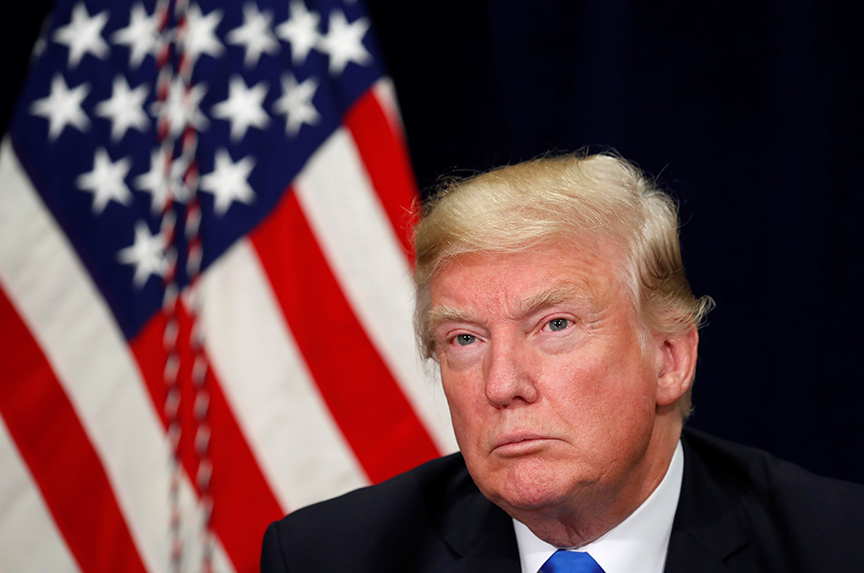 The Trump administration on October 26 issued a robust list of Russian defense and intelligence sector entities plus public guidance, which together seem to indicate its intention to robustly implement the new Russia sanctions. Although the list does not itself impose sanctions, it is a significant action, which, if implemented carefully, could impose new restrictions on Russian military and intelligence apparatus.
The Trump administration on October 26 issued a robust list of Russian defense and intelligence sector entities plus public guidance, which together seem to indicate its intention to robustly implement the new Russia sanctions. Although the list does not itself impose sanctions, it is a significant action, which, if implemented carefully, could impose new restrictions on Russian military and intelligence apparatus.
Section 231 of the recent Russia sanctions law (the “Countering America’s Adversaries Through Sanctions Act”) requires the administration to choose from a menu of sanctions on persons engaging in “significant transactions” with the Russian defense or intelligence sector. The intention appears to be to put pressure on third countries to curtail arms purchases from Russia and isolate Russia’s defense industry. As we cautioned earlier (in the Atlantic Council’s paper of September 2017, “The New Russia Sanctions Law”), over-broad or inflexible interpretation of the law could create conflicts with friends and allies who purchase Russian arms, and curtail otherwise legitimate civilian trade, due to the broad activities of some Russian defense-related entities. We urged the administration to implement Section 231 in a way that does not harm allies and partners; the administration appears to have done so.
The list of Russian defense and intelligence entities subject to Section 231’s restrictions is strong. Notably, the list includes Sukhoi, the Russian airplane manufacturer whose planes were reportedly used in the horrific Khan Sheikhoun chemical attack in Syria in April; Rosoboronexport, Russia’s state arms exporter that was involved in the controversial S-300 missile sale to Iran in 2016; and Tupolev, which makes bombers that have also been used in Syria. Rostec, a massive industrial conglomerate that serves as a holding company for much of Russia’s defense sector and includes up to 700 entities across civilian as well as military sectors, is also on the list. The list further includes the SVR, Russia’s external intelligence service and the one major arm of Russia’s intelligence apparatus not designated by the Obama administration in response to Russia’s interference in the 2016 US election. The listing of these entities will increase the potential risk for any company or country that engages with them in business, sharpening a choice: do business with the United States, or do business with these Russian entities.
Our earlier cautionary advice remains: the administration should manage the impact of Section 231 with care, mindful of legitimate interests of our friends and allies. That means, among other things, not extending it to civilian trade, including civil aviation. In general, and given the US friends who import Russia weapons, such as Afghanistan, India, and Vietnam, the administration should also give itself flexibility to implement this section on a case-by-case basis.
Public guidance issued on October 26 suggests the administration is aware of the potential pitfalls and intends to take heed of them: the guidance contains a near carve-out for civilian transactions and indicates that the administration will define “significant transactions” on a case-by-case basis, “mindful of the importance of unity and coordination with our allies and partners.” The administration should also make clear its intention to remove sanctions should the aggressive Russian behavior, which led to their imposition, cease, e.g., should a settlement be reached in Ukraine along the lines of the Minsk Accords.
Implemented wisely, and working with allies, Section 231 could put additional pressure on Russia’s defense industry, a significant source of national income and a point of national (and Russian President Vladimir Putin’s) pride. Whatever doubts may have been generated by earlier rhetoric from US President Donald J. Trump, the administration’s action is a meaningful and proportional response to Russian aggression that the US Congress appears to have intended when it passed the law.
Daniel Fried is a distinguished fellow in the Atlantic Council’s Future Europe Initiative and Dinu Patriciu Eurasia Center.
Brian O’Toole is a nonresident senior fellow in the Atlantic Council’s Global Business and Economics Program. Follow him on Twitter @brianoftoole.
Image: US President Donald J. Trump’s administration on October 26 issued long-overdue guidance to the US Congress on which Russian individuals and entities will be subject to sanctions under recently passed legislation. (Reuters/Kevin Lamarque)
